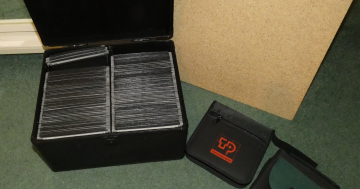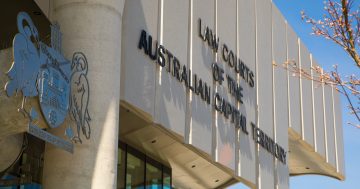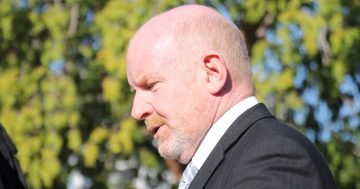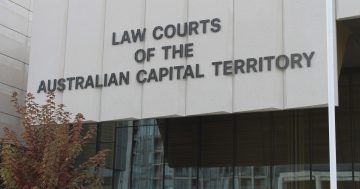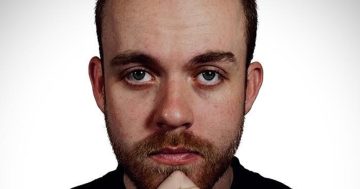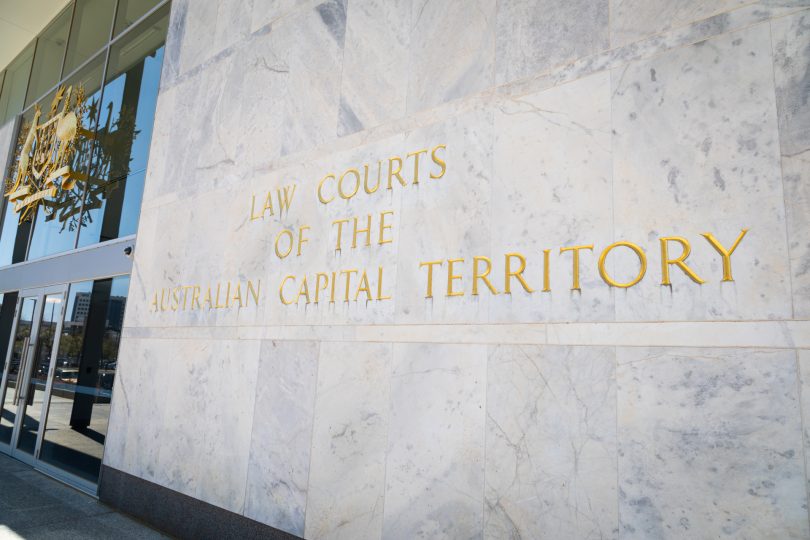
Benedict John Cusack, a former public servant, has been sentenced over child abuse material charges. Photo: Michelle Kroll.
The court has heard a child sex offender questioned what sort of a person he had become before being jailed for downloading “morally abhorrent” images of children being abused.
A 15-year veteran of the public service, Benedict John Cusack, 42, admitted he downloaded 2517 photos and videos of child abuse material ahead of his sentencing in the ACT Supreme Court on Wednesday (28 April).
But clinical and forensic psychologist Dr Bruce Stevens told the court the Evatt man had a “very plausible explanation” for viewing child abuse material.
He said Cusack had a history of depression and was in a “sexualised state” trying to self-soothe the symptoms of his disorder by using adult pornography and illegal material.
“I think he was depressed out of his brain,” he said.
Dr Stevens said while Cusack had used adult pornography for a long time, he fell into “a space he knew was wrong and illegal” when he started viewing child abuse material.
He also said Cusack was self-destructive and did not care if he was caught; he said people act in “crazy ways”.
But prosecutor Zoe Hough described the files Cusack downloaded as “morally abhorrent” and said he made ongoing decisions to access the material for the last five years.
“This type of offending is not victimless. It does cause harm to real children,” she said.
Earlier, Ms Hough had said Cusack had written a letter in April this year about his offences, where he questioned: “What kind of person does this?”
“What have I become?”
Justice Michael Elkaim also expressed strong sentiments about Cusack’s offending.
“There are literally no words to adequately describe what the children subject in the images have experienced,” he said.
He said every time an image of child abuse material was downloaded, its producer was encouraged to abuse a child again.
Cusack’s barrister, Beth Morrisroe of Burley Griffin Chambers, had argued her client had “clear, ongoing and demonstrated remorse and contrition” and had made confessions to his family and friends about what he had done.
She said he had made significant steps towards his rehabilitation and travelled to Sydney every week to attend a program for treatment.
“He sought help from wherever he could find it,” she said.
Justice Elkaim said the court had been told Cusack’s offending was a product of major depression, and his judgement had been compromised.
But he said he found the concept of watching the abuse of children as a “salve to a depressed mood” to be difficult to understand.
Cusack had pleaded guilty to one count of possessing child abuse material accessed using a carriage service and two counts of using a carriage service to access child abuse material. He faced a maximum of 15 years’ jail.
Justice Elkaim sentenced him to one year in jail, suspended in June 2021 after two months and followed by an 18-month recognisance release order for which he must pay $1000 and be of good behaviour.












